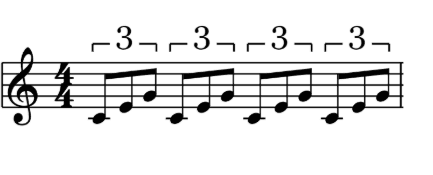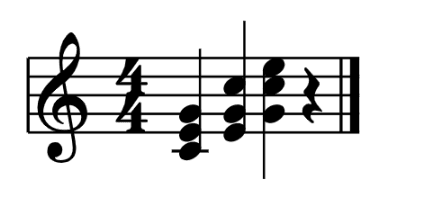Myths about teaching can hold you back
Learn why
Lesson 7 of 11
- Year 9
Lesson 7 of 11
- Year 9
How can you write powerful lyrics and set these to music?
These resources were made for remote use during the pandemic, not classroom teaching.
Switch to our new teaching resources now - designed by teachers and leading subject experts, and tested in classrooms.
Lesson details
Key learning points
- In this lesson, we will explore how to write lyrics and set these to a melody.
Licence
This content is made available by Oak National Academy Limited and its partners and licensed under Oak’s terms & conditions (Collection 1), except where otherwise stated.
6 Questions
Q1.What is a perfect cadence?
What is a perfect cadence?
I-V sounds unfinished
V-vi -Major to minor
Q2.What is an imperfect cadence?
What is an imperfect cadence?
V-I - sounds finished
V-vi -Major to minor
Q3.What is an interrupted cadence?
What is an interrupted cadence?
I-V sounds unfinished
V-I - sounds finished
Q4.What accompaniment style is the following an example of?
What accompaniment style is the following an example of?

Inversion
Melodic passing notes
Q5.What accompaniment style is the following an example of?
What accompaniment style is the following an example of?

Broken chords
Melodic passing notes
Q6.What accompaniment style is the following an example of?
What accompaniment style is the following an example of?

Broken chords
Inversion
5 Questions
Q1.What does syllabic mean?
What does syllabic mean?
A single syllable sung over multiple notes.
Others
When you repeat the same syllable over and over.
Q2.What does melismatic mean?
What does melismatic mean?
One note per syllable.
When you repeat the same syllable over and over.
Q3.Is "Imagine" mostly syllabic or melismatic?
Is "Imagine" mostly syllabic or melismatic?
Melismatic
None of the above
Q4.What is the correct order when using the lyrics circle method?
What is the correct order when using the lyrics circle method?
Rhyming words, connected words, topic.
Rhyming words, topic, connected words.
Q5.Which of the following is an example of alliteration?
Which of the following is an example of alliteration?
Fable, table.
Hesitation, King Cross Station.

